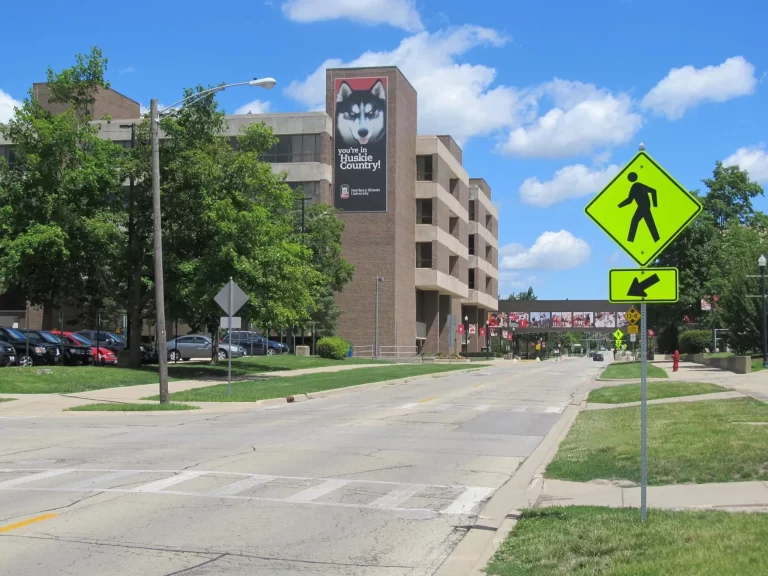Student debt has soared in the 21st Century. It went from $520 billion in 2006 to now over $1.7 trillion.
The Biden administration recently announced a student loan forgiveness program. Some borrowers could have as much as $20,000 forgiven.
The White House estimates that around 43 million borrowers could be eligible for some debt forgiveness. Of those, close to half could have their student loan debt completely erased.
Charlie Wacholz graduated from Columbia College Chicago this spring. He could see nearly half of his federal student loans canceled. Wacholz says the relief feels reassuring, especially as a freelance journalist where prompt pay isn’t guaranteed.
“I’m still waiting on writing that I did in early July for payments,” he said. “Some of these gigs are my bread and butter. The gigs that take the longest to pay are usually the gigs that pay the most — [those are] the gigs I pay my rent with and buy my groceries with.”
But, Wacholz still feels lucky. He worked hard to pay for school, but he knows others don’t have the family support and financial safety net he did. And he knows that for others, most often students of color, even $20,000 worth of forgiveness is just a drop in the bucket.
The average Black public university graduate in Illinois owes $32,000 in loans, which is about $10,000 higher than white grads from those same schools. Nearly 30% of Black borrowers have monthly loan payments over $350.
Maya Rothman is a Black college grad who finished school just before the pandemic. It made it especially hard for her to find steady work, especially as someone with a physical disability.
“The way that loans come out has been historically just not great for people of color to put it nicely,” she said.
The Streamwood resident was thrilled when she first heard the news and said it could wipe out a sizable chunk of her debt. For her, it’s a first step towards financial security. And she hopes the debt relief program is a first step towards real solutions to make college more affordable for everyone.
That’s what Mike Abrahamson, policy manager at the Partnership for College Completion, is focused on.
His organization is part of the Illinois State Board of Higher Education’s Commission on Equitable Public University Funding. Coming up with a new way to fund higher-ed is complex. They have to weigh what resources schools and students need to be successful. But, Abrahamson says in some ways it is simple — they need more funding.
“We have to acknowledge that for two decades, basically, our universities have been asked to do more with less and less and less. And so the first thing I want to say is that there’s no substitute for this additional funding we need to see,” said Abrahamson.
Over the past 20 years or so, Abrahamson says much of the cost has been shifted to students. He says you can draw a direct line from the lack of state investment in higher-ed to the unique, substantial enrollment declines at Illinois universities.
Dr. Tammy Batson teaches in the Department of Economics at Northern Illinois University. As an economist, she thinks debt relief was a good move at a good time. And, despite worries from some, she doesn’t see it as a driver of inflation.
“I don’t know if it will contribute considerably to what we’re already dealing with,” said Batson. “I think we’re already dealing with supply chain issues. To be honest, I think no one has been paying these student debts for this amount of time at this point.”
She thinks that reinstituting student loans right away would have been worrying for an economy struggling to find its footing. But she also gets why some who may have been priced out of college or otherwise didn’t pursue a degree might find it unfair.
“I can hear what they’re saying. And most of what I would say is, remind yourself, you still have maybe kids or grandkids coming through a system,” she said. “And, if I’m part of anyone’s administration, I would be clear that if you have not been extended this opportunity at this point, you are more than welcome to take it now.”
In a recent speech, President Biden outlined what he believes debt relief will offer people.
“All this means people can finally crawl out of that mountain of debt,” said President Biden. “They can get on top of their rent and utilities to finally think about buying a home and starting a business.”
That’s exactly what Jacob Colgen is thinking too. He graduated the University of Illinois at Chicago a few years ago with a degree in electrical engineering.
“This relief eliminates a majority of my remaining debt and will give me some breathing room to start looking for a house,” he said.
Even if it’s just a band-aid and not a long-term solution, for some people like Colgan, debt forgiveness means he can move forward into the next phase of his life.

